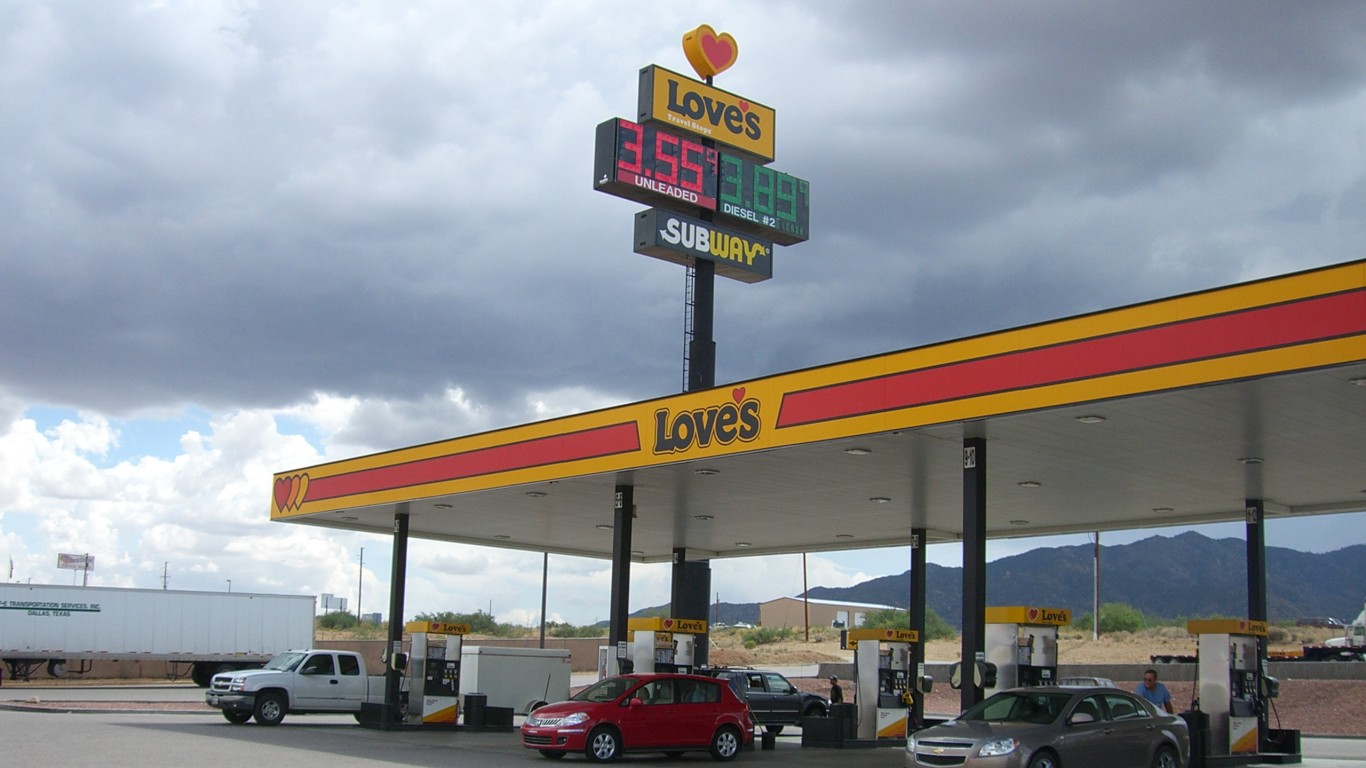
Source: Thinkstock
For the fourth quarter, Baker Hughes reported adjusted diluted earnings per share (EPS) of $1.02 on revenues of $6.6 billion. In the fourth quarter a year ago, the company reported EPS of $0.62 on revenues of $5.86 billion. Consensus estimates called for EPS of $1.44 on revenues of $6.41 billion.
For the full year, Baker Hughes reported EPS of $4.22 on revenues of $24.6 billion, compared with EPS of $2.62 on revenues of $22.36 billion in 2013. Analysts were looking for EPS of $3.87 on revenues of $24.3 billion.
Halliburton’s fourth-quarter adjusted diluted EPS totaled $1.19, excluding $0.11 per share in restructuring charges and $0.02 per share in merger-related costs. Revenues totaled $8.77 billion. In the year-ago quarter Halliburton reported EPS of $0.93 on revenues of $7.64 billion. The consensus estimate called for EPS of $1.10 on revenues of $8.78 billion.
ALSO READ: 5 Large-Cap Dividend Energy Stocks to Buy With Oil Plunging
For the year, the company reported $4.02 in earnings per share on revenues of $32.9 billion. A year ago Halliburton reported EPS of $3.15 on revenues of $29.40. The consensus estimates called for EPS of $3.94 on revenues of $32.83 billion.
Neither company offered a word regarding guidance for the first quarter or for the 2015 fiscal year. Baker Hughes did say that capex fell 14% year-over-year in 2014 to $1.8 billion, even though its fourth-quarter spending was $78 million more than in the third quarter. Halliburton’s capex for the year totaled $3.28 billion, compared with $2.93 billion in 2013.
Consensus estimates call for Baker Hughes first-quarter EPS of $0.86 on revenues of $5.94 billion and full-year EPS of $2.89 on revenues of $22.66 billion. Halliburton is expected to post EPS of $0.88 on revenues of $7.99 billion in the first quarter and EPS of $2.95 on revenues of $30.57 for the full year.
At Baker Hughes, fourth-quarter revenues rose to $3.3 billion, a record on increased activity in Canada, West Texas, and the “Southern geomarket.” Pressure pumping, artificial lift, upstream chemicals, completion systems and drill bits all did well, and the company specifically noted that pressure pumping increased significantly.
Halliburton’s North American revenues were essentially flat sequentially, which the company attributed to weather and holiday downtime. Revenues were 10% higher in the Middle East/Asia region, but fell 8% in the Europe/Africa/CIS, partly due to currency weakness in Russia. Ruble depreciation also hit Baker Hughes.
Both firms had decent quarters, but the next couple of quarters are shaping up to be more difficult as oil producers adjust (read, slash) their capex budgets. Drilling will be reduced and both Baker Hughes and Halliburton will face lower prices for their completion services as producers drive hard bargains with fewer wells to be worked. We will have to wait for the conference calls to hear how these companies plan to adjust.
ALSO READ: Lower Oil Prices and the Initial Impact on Houston
Shares of Baker Hughes traded up about 1.2% in Tuesday’s premarket, at $57.25 in a 52-week range of $47.51 to $75.64.
Halliburton’s shares were up 2.3% to $40.04, in a 52-week range of $37.21 to $74.33.
At the time of the merger announcement in mid-November, Halliburton was paying about $78.62 a share for Baker Hughes, which included $19.00 a share in cash and 1.12 shares of Halliburton stock. At the current share price of around $40 for Halliburton stock, the deal is worth about $63.80 per share to Baker Hughes shareholders.
Sponsored: Find a Qualified Financial Advisor
Finding a qualified financial advisor doesn’t have to be hard. SmartAsset’s free tool matches you with up to 3 fiduciary financial advisors in your area in 5 minutes. Each advisor has been vetted by SmartAsset and is held to a fiduciary standard to act in your best interests. If you’re ready to be matched with local advisors that can help you achieve your financial goals, get started now.
Thank you for reading! Have some feedback for us?
Contact the 24/7 Wall St. editorial team.


